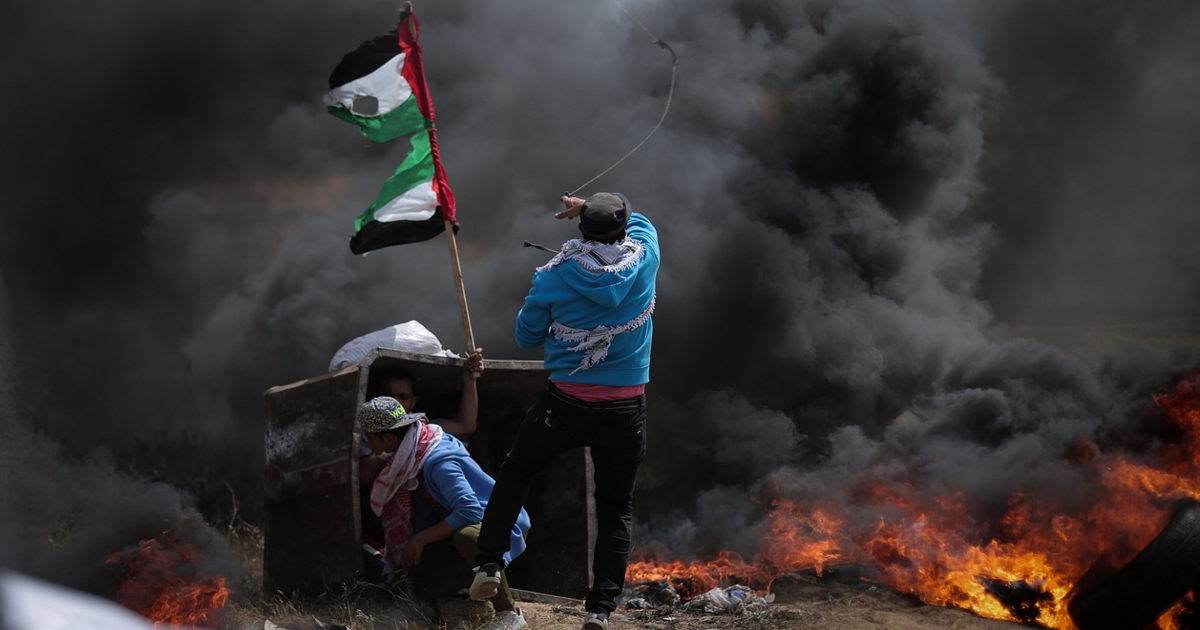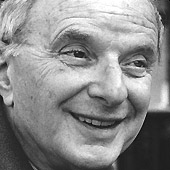European Islam and Tariq Ramadan
What are the prospects for a moderate version of Islam that takes into account European traditions and values?
February 9, 2008
No one has appeared more frequently on television interviews and talk shows in Western Europe, and the cassettes containing his messages have been circulated in tens of thousands of copies.
Time Magazine included him among the 100 most important intellectuals of the 20th century. Others have called him the Muslim equivalent of the Reverend Martin Luther King Jr.
Tariq Ramadan — the grandson of Hassan al-Banna, the founder of the Muslim Brotherhood in Egypt — was born in Switzerland in 1962 and is a Swiss citizen.
In his youth, he was an excellent soccer player and even played for Servette Geneva, one of the best Swiss teams. But he resisted the temptation to become a professional — and instead turned to the study of Islam.
He has appeared as a speaker in many countries — and served as an adviser to Prime Minister Tony Blair in Britain. And yet, he was refused entry to the United States and for a while also to France.
Tariq Ramadan’s critics, comparing his writings and messages in Arabic and in European languages, have argued that “Brother Tariq” has made it a practice to preach a moderate, enlightened version of his faith in French and English — and a more aggressive and radical message in Arabic.
In brief, Tariq is as much a supporter of the Muslim Brotherhood as his grandfather, his late father, Said, and his brothers, all of whom were or still are very active on its behalf, and not just in the field of propaganda.
Tariq has declared that he was never a member of the Brotherhood. However, this is not a very meaningful statement, because the Brotherhood — unlike a political party — does not practice a Western-style bureaucratic “party membership” with monthly dues, membership certificates and the like.
In his books (such as To Be a European Muslim (1999) and Western Muslims and the Future of Islam (2003) and speeches, Mr. Ramadan argues that with the growth of Muslim communities in the West, gradual change (perhaps even a silent revolution) is taking place.
And he argues that the change should make it possible for believing and practicing Muslims to keep faithful to their religion and live in harmony with their fellow citizens — rather than to shut themselves away in a minority enclave.
Given the character of Islam, the sharia (the religious law) and the instructions of the Koran on how to behave toward infidels, this is not an easy assignment and it is bound to involve Tariq Ramadan in many contradictions.
He argues that he has no problem with a secular state and society. Yet, at the same time he bitterly opposed the French regulation banning the hijab in schools.
He says that Muslims first and foremost belong to the umma — the community of believers — and they should do nothing that would make them bad Muslims.
He also says that the allegiance of Muslims in the West should be to the state and country in which they live. This would mean that they should obey the authorities — as long as the authorities or society imposes nothing on them that contradicts their religion.
In such cases, there should be a “conscience clause” that allows them to state that certain actions or behavior is against their faith.
This pick-and-chose approach as to what laws are to be observed can also be found among certain Christian sects (concerning, for instance, military service).
But in the case of” Euro Islam,” it would be much more far-reaching.
Many who had closely followed Ramadan’s utterances did not believe in their sincerity and thought that, in his heart, he was still a Muslim Brotherhood member — and the reforms he suggested were no more than cosmetic.
One of his dissertations had consisted of a defense of the Muslim Brotherhood — he had attacked French Jewish intellectuals (including some who were not actually Jewish) for their critical attitude toward lslamism.
And on essential issues, he never distanced himself from the Brotherhood and its fundamental tenets.
When in a television debate, as he was pressed on his stand concerning the stoning of women as a punishment for adultery, he would not dissociate himself from the practice but only replied that he would ask for a moratorium. His brother, a doctor of philosophy in Geneva and a teacher, justified stoning.
Tariq Ramadan said afterward that had he condemned stoning, he would have made friends with France’s then interior minister Nicolas Sarkozy — but would have lost his following in the Muslim world and “once condemned, I can’t change anything in the Muslim world.”
This shows the limits of Ramadan as a reformer. His record has been contradictory — he has condemned terrorism in Europe, particularly in England.
He wants European Muslims to be more self-critical, but at the same time more conservative Islamic as far as their religion is concerned. He says he is against censorship, but worked very hard (and successfully) for the banning of Voltaire’s play Fanaticism, or Mahomet the Prophet (1741) in Geneva.
In my view, there is not one Tariq Ramadan, but there are two — and for the time being (and the foreseeable future) the Islamist Tariq is bound to be the stronger.
Takeaways
Tariq Ramadan's critics have argued that "Brother Tariq" has made it a practice to preach a moderate, enlightened version of his faith in French and English and a more aggressive — and radical message in Arabic.
With the growth of Muslim communities in the West, gradual change is taking place that should make it possible for believing and practicing Muslims to keep faithful to their religion and yet live in harmony with their fellow citizens.
Ramadan says that Muslims first and foremost belong to the umma — and they should do nothing that would make them bad Muslims. Yet, he also says that the allegiance of Muslims in the West should be to the state and country in which they live.
Many who closely followed Ramadan's utterances did not believe in their sincerity — and thought that in his heart he was still a Muslim Brotherhood member.
There is not one Tariq Ramadan — but there are two. And for the time being, and the foreseeable future, the Islamist Tariq is bound to be the stronger.
Read previous

The Humanitarian Disaster Called "Gaza"
February 8, 2008
